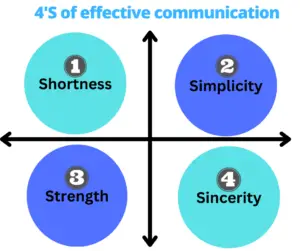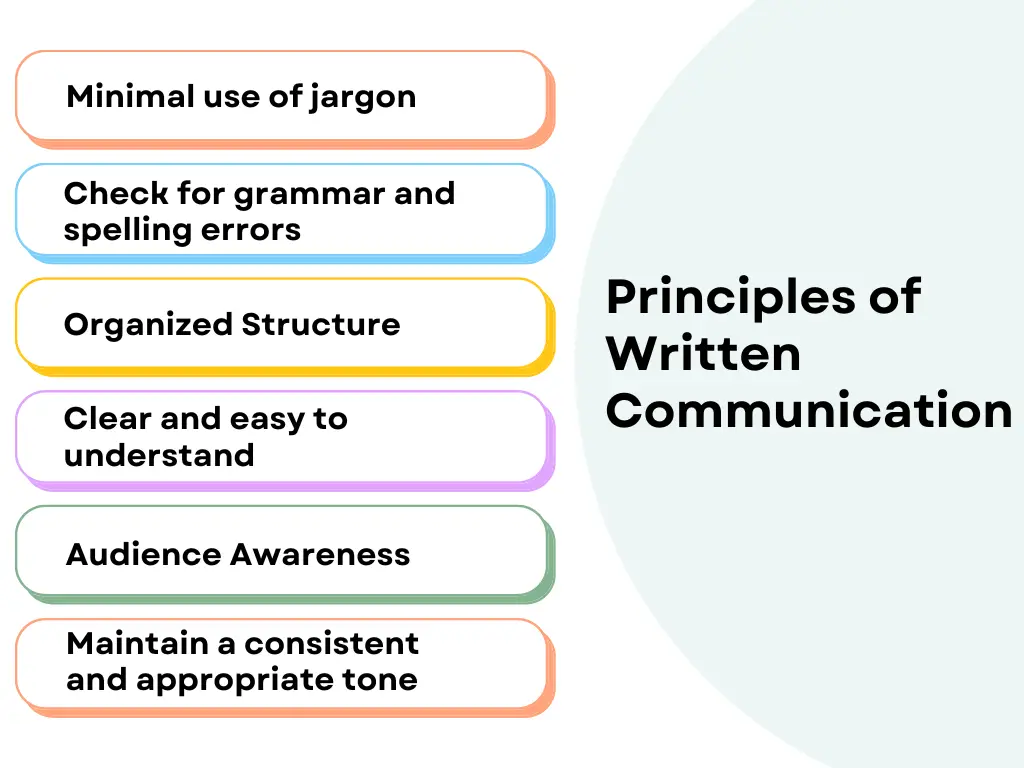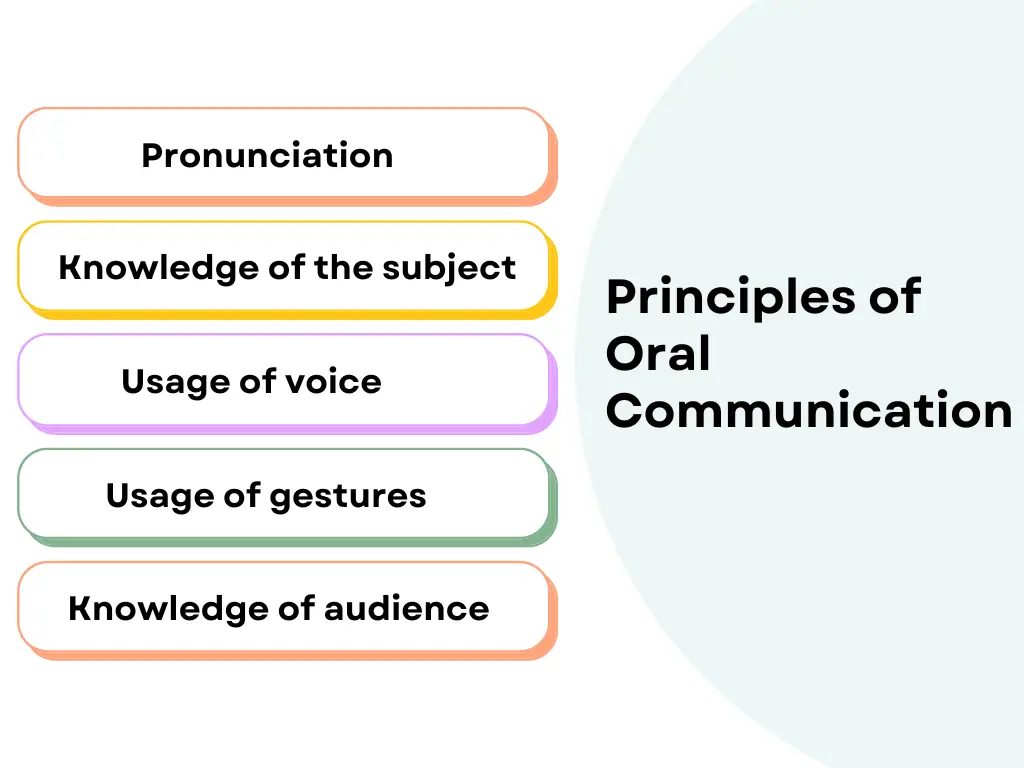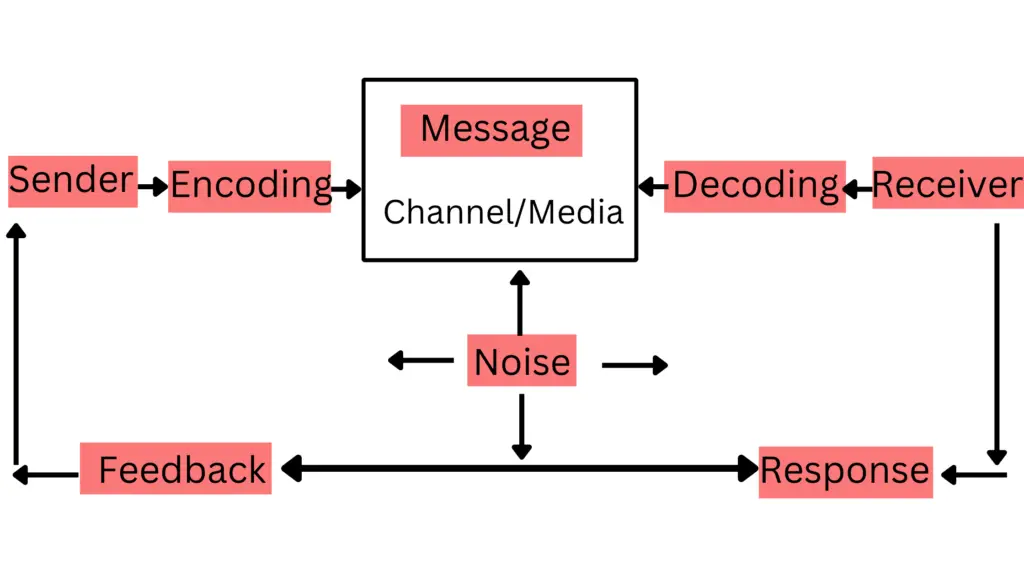Effective communication is a crucial skill that impacts nearly every aspect of our personal and professional lives. Therefore the ability to communicate effectively is essential and in this blog, we will explore the 10 principles of effective communication along with their importance, and how they can help our everyday communication.
What are communicative principles?
Communicative principles, often referred to as communication principles, are fundamental guidelines that govern effective and meaningful communication between individuals or within a group. These principles provide a framework for successful interaction, whether in written or spoken form, and they aim to ensure that messages are understood accurately.
10 Principles of Effective Communication
There are 10 basic principles of effective communication that help develop a good message and its smooth transmission. These principles are:
1) Principle of Clarity in Ideas:
Effective communication starts with a clear understanding of the message by the sender. When the sender has a clear and well-defined idea, the message will more likely be effectively transmitted to the receiver.
2) Principle of Appropriate Language:
Communication should employ plain and easily understandable language, avoiding technical jargon or words with multiple interpretations to prevent misunderstandings and ensure clarity.
3) Principle of Consistency:
Communication within an organization should align with the objectives, policies, and procedures established by the management, ensuring that all messages are consistent with the overall goals of the enterprise.
4) Principle of Proper Time:
Timeliness is crucial in effective communication. Messages should reach the receiver at the right time, ensuring that the information remains relevant and useful to the receiver’s needs.
5) Principle of Informality:
While formal communication is essential, informal communication also significantly addresses certain issues within the organization. Informal communication can often resolve problems that formal communication cannot.
6) Principle of Adequacy:
Information should be complete and sufficient, meeting the needs of the receiver. Overloading the receiver with necessary details or providing sufficient information can lead to clarity and interpretation.
7) Principle of Feedback:
Obtaining feedback is crucial for the sender to ensure that the message has been understood as intended. The benefits of feedback in communication are significant, as it facilitates a better understanding of how the message is received and interpreted. Feedback can be acquired through various means, including face-to-face interaction and written responses.
8) Principle of Economy:
Communication should be cost-effective, avoiding unnecessary messages and ensuring that the workload related to communication is distributed evenly among employees.
9) Principle of Proper Medium:
Selecting the right communication channel is crucial for successful communication. Oral communication may be more suitable for individual conversations, while written communication is preferable for formal policies and procedures.
10) Principle of Attention:
Effective communication not only involves the transmission of information but also requires the receiver’s active involvement and attentiveness to understand the message correctly.
What are the principles of effective communication in an organization?
There are four primary principles that should guide effective communication within the organization:
1) Principle of Flexibility: A communication system should be adaptable to changes within the organization. An inflexible communication system that fails to accommodate changes may become obsolete and ineffective over time.
2) Principle of Consultation: When planning communication strategies at work, it is essential to seek input from all relevant parties. Involving employees in the decision-making process can lead to a more effective and successful communication system.
3) Principle of Integration: Communication should align all employees with the organizational objectives, developing a sense of unity and cooperation among the workforce in achieving common goals.
4) Employee Engagement: Effective communication should engage and involve employees in the organization’s goals and decision-making processes. Engaged employees are more likely to be motivated and committed to achieving the organization’s objectives.
4S of Effective Communication
In an effective communication model, the communicator must follow the 4 S’s of effective communication – Shortness, Simplicity, Strength, and Sincerity. Here’s how each of them improves communication:

1) Shortness: The shorter a message is, the more effective the communication process could be executed. Long messages with unnecessary pretexts may affect communication and confuse the receiver which may delay the whole communication process.
2) Simplicity: The ideas, concepts, and terms used in a message should be kept as simple as possible to bring overall clarity to the message and make it easier for the receiver to comprehend.
3) Strength: For communication to be effective, one needs to strengthen it with a believable tone. The message should sound genuine and authentic for the receiver to believe it.
4) Sincerity: A message should reflect the sincerity of the sender for improving the process of communication. A sincere approach toward the topic should be evident enough in the message.
What is the Importance of Effective Communication in the Workplace?
In a formal organization, effective communication helps in the clear transmission of messages and efficient time management. A well-defined communication model in the workplace achieves the following objectives:
- Engagement: One of the most important objectives of effective communication is to increase engagement among employees in the workplace. Engagement and maintaining relationships are important for an improved workplace environment.
- Guide to actions: Effective communication works as a guideline for taking various actions and decisions at the workplace. It facilitates clarity in the objectives and goals of an organization.
- Morale-boosting: Good communication invites participation from employees and boosts their morale at personal as well as professional levels.
- Decreased conflicts: Effective communication on a regular basis decreases the chances of conflicts among various employees and departments, eventually leading to efficient working.
How do you incorporate the principles of effective communciation into your present work?
Incorporating the principles of effective communication into the workplace is essential for developing a productive environment. Here are some strategies to help you do that:
Establish a Clear Communication Policy:
- Create a formal communication policy that outlines the principles and guidelines for effective communication within the organization.
- Ensure that all employees are aware of and understand this policy, and periodically review it to keep it up-to-date.
Promote Transparency:
- Encourage open and transparent communication by sharing relevant information with employees.
- Be honest about the organization’s challenges and successes, and communicate them to all levels of the workforce.
Train Employees in Communication Skills:
- Provide communication training to employees at all levels. This can include conflict resolution and presentation skills.
- Invest in leadership and management training to ensure that leaders set a positive example of effective communication.
Use Multiple Communication Channels:
- Make use of a range of communication platforms, including email and face-to-face meetings., video conferences, and internal communication platforms.
- Choose the most appropriate channel for the type of message and the audience.
How can Principles of Effective Communication enhance Communication Effectiveness?
The 12 principles of effective communication discussed earlier are important to consider when communicating as they enhance communication effectiveness in multiple ways. This includes the following uses:
Helps in creating the base for an effective message: The objective of the messages needs to be understandable and useful for effective communication. Applying the principles of effective communication acts as the base for developing a clear message.
Guidance in the process: Implementing all the principles of effective communication guides the sender and receiver in executing a successful communication process.
Relationship building: Mutual trust, respect, and empathy are crucial for achieving communication effectiveness. Principles of effective communication help develop such a relationship between the sender and receiver- ultimately contributing to communication effectiveness.
Clarity of goals & purpose: The fundamentals of effective communication help get clarity towards the goal of communication as well as the purpose behind it. This eventually helps the sender and the receiver in executing meaningful and effective communication.
Principles of Written Communication
When it comes to written communication, there are specific principles that help make it effective. These principles include:

Principles of Oral Communication
Just like written communication, oral communication can also be made effective by applying the principles of oral communication. They are:

To know more check out our detailed guide on 12 key principles of oral communication
What are the Elements of the Communication Process?
There are nine elements of communication that make this process complete. They include the following:

Must Read: What are the 9 elements of communication and examples
Frequently Asked Questions
Q1) What are the 5 principles of effective communication?
Ans: The 5 principles of effective communication are the principles of timeliness, clarity, feedback, active listening, and the principle of objective. Following these principles results in a successful and effective communication process.
Q2) What are the three principles of effective communication?
Ans: The three main principles of effective communication are the principle of knowing your audience, the principle of clarity, and the principle of authenticity and trust. These principles help build a clear message and the base for effective communication.
Q3) What are the barriers to communication?
Ans: The barriers to communication can be physical, psychological, linguistic, cultural, or mechanical in nature. These barriers can hinder the process of effective communication at various stages.



